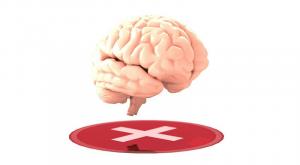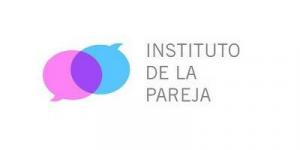How is Attention Deficit Hyperactivity Disorder treated?
We know that the Attention deficit disorder and hyperactivity (ADHD) is a syndrome that affects both children and adults and also affects a wide range of behaviors that they carry out. In fact, some authors propose to speak of "syndrome" rather than "disorder" in order to emphasize the impact of this problem in multiple areas of life. Although there are different criteria to determine if a person has ADHD or not, the essential characteristic of the picture is the presence of inattention, impulsivity —that is, the lack of inhibitory control of one's own behaviors— and hyperactivity.
However, far from being a pigeonhole category, different activists strive daily to vindicate the stories of people with ADHD and their ability to think outside the box. The syndrome always persists, but its symptoms do not have to be a problem for leading a different life from anyone else.
In fact, the variety of great personalities who were (or could have been) diagnosed with ADHD demonstrate it, such as Biles, Bolt, Jordan and Phelps (and those are just athletes). ADHD has a treatment, and this is usually medical, specifically pharmacological; although the usefulness of the approach from psychotherapy has also been demonstrated. In this article we will develop
what both treatments for ADHD consist of.- Related article: "Mental health: definition and characteristics according to psychology"
Pharmacological treatment for ADHD
Although research teams are constantly trying to find the best alternatives to treat ADHD, it is has shown that treatment with certain specific drugs is highly efficient in reducing the symptoms of person. From a pharmacological perspective, and no matter how counterintuitive it may seem according to common sense, it is essential to consider that the substances that substances that tend to calm individuals with ADHD are stimulants, while substances of a calming nature tend to make them more nervousness.
The drug that has become the preferred drug for the treatment of ADHD is methylphenidate, since its side effects are minimal and the only essential requirement to be administered is that there be periodic medical controls. This medicine can have two presentations, fast absorption and slow absorption; both very efficient.
Its main difference lies in the number of doses per day that it requires (in the case of slow absorption, a single dose is enough; for fast-absorbing, it should be taken two or three times a day). Other medications that are also commonly used for the treatment of ADHD are atomoxetine or dextroamphetamine. The type of medication, the dose and the frequency with which it should be taken will depend on the particularities of the patient and should always be determined by a doctor who knows the case.
- You may be interested in: "The 7 types of neurodevelopmental disorders (symptoms and causes)"
What professionals can diagnose and treat ADHD?
A frequently asked question about ADHD is regarding its diagnosis: what professionals can do it? Well, there are several professionals who can do it; for example, it can be carried out by a pediatrician or a psychiatrist. These use manuals that establish standard guidelines (such as the DSM-5) to determine if a patient fits into a particular clinical picture according to the symptoms they present. It is important to note that the diagnosis is exclusively clinical, since there are currently no biomedical tests that allow an objective diagnosis. of whether a person has this syndrome or not, so the clinical history that evaluates the patient's symptoms must be carried out with the greatest rigor possible.
The diagnosis can also be made by another mental health professional, the psychologist, who through a interview will be able to determine if the person presents sufficient criteria to be diagnosed with ADHD. To do this, you must ensure that the symptoms are not better suited to another picture. Psychologists can also carry out treatments and interventions with respect to these patients, since they scientific findings support that psychological support and psychotherapy can be useful in some cases of ADHD.
##Psychological treatment for ADHD. As we said before, the treatment of ADHD usually involves in the vast majority of cases a pharmacological treatment. What happens is that, although the use of drugs would produce an improvement in the person by itself, basing the treatment exclusively in this strategy would imply an incomplete way of approaching ADHD according to the evidence scientific. Some psychotherapeutic approaches such as the cognitive behavioral therapy (TCC) have offered favorable results for the treatment of this syndrome.
In children as well as in adolescents and adults, CBT can mean an improvement in self-control, reflection and interpersonal relationships. In addition, it can provide the person with ADHD with tools so that they are able to fill in some areas of their life in which the symptoms could negatively affect them. For example, CBT favors the development of communication and emotional management strategies to achieve positive changes. at a behavioral level, which can be perceived by the people around them (such as parents and teachers, if it is a child); as well as training in academic, planning, and organizational skills, which would be reflected in improvements in meeting schedules or in missing less school. As if that were not enough, a curious fact is that psychosocial treatments have been found to be associated with a decrease in the stimulant medication required to treat ADHD.
In addition, a relevant characteristic of psychological treatment for ADHD is that it, as far as possible, should include people close to the patient with the aim of helping you improve symptoms and comorbidities. It is necessary that individuals, especially adults, have the ability to correct certain impulsive or hyperactive habits to function in social and work environments. This requires a multidisciplinary and coordinated treatment. For this reason, the integration between pharmacological treatment and psychological treatment has proven to be one of the best alternatives for the treatment of ADHD.



